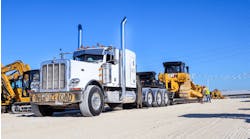Back in 1933, Leon Hess, then aged just 19, formed Hess Inc. and purchased a 1926 second-hand 615-gallon oil delivery truck and begins residential delivery, seven days a week, near his home in Asbury Park, NJ. Over the next two decades, with experience gleaned as a petroleum supply officer in the U.S. Army, Hess made his company into a major oil refinery and distribution powerhouse. In 1960, though, when Hess opened his first gasoline filling station, it was common practice to give customers a gift with their fuel purchase. Gifts at the time included mugs, glassware, but usually a die-cast toy truck. Hess decided to take that practice a step further by offering what he considered a "quality toy" at his filling stations and thus began a half-century tradition.


